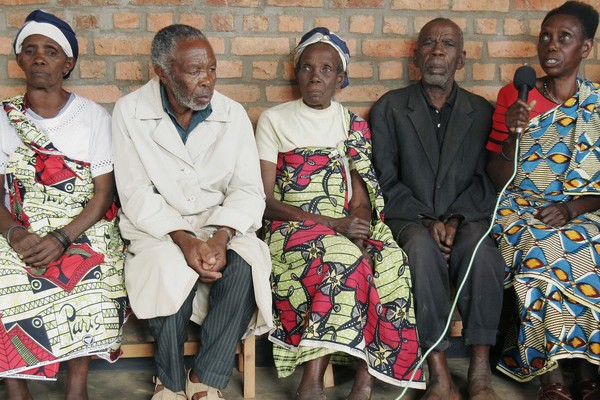More than two decades after the 1994 Genocide against the Tutsi, Rwanda has made substantial progress in the social, economic and political realms. The country has developed a viable multiparty system, while the determined efforts of numerous state and civil society initiatives are gradually leading the country towards peaceful coexistence between individuals and diverse groups within the Rwandan nation. Despite these impressive gains, however, several challenges to sustainable peace remain, most of them stemming from both the period before and after the Genocide.
Interpeace and Never Again Rwanda (NAR), a Rwandan peacebuilding and human rights organization, are currently implementing a joint programme named the “Societal Healing and Participatory Governance for Sustainable Peace in Rwanda”. The programme aims to contribute to the consolidation of a peaceful and inclusive Rwandan society, that is, a society that is able to peacefully manage conflicts, embrace diversity, and enact policies that are responsive to citizen priorities. A key goal of the programme is to empower citizens to use new and existing ways to communicate with decision-makers at local, district and national levels.
The societal healing and reconciliation aspect of the programme facilitates dialogue spaces in which community members can openly discuss sensitive topics, identify solutions and reach consensus on priorities for peace. The dialogue gives community members of diverse backgrounds an opportunity to regularly convene. The programme has led a number of youth groups that critically discussed issues of trust, identity and stereotyping, and the history of the 1994 Genocide. Through these engagements, members of the youth groups have developed an awareness of how these issues still affect relationships and can be a potential source of future violence and have started to take actions independently aimed at building trust. These actions include implementing peacebuilding activities in their communities and schools, as part of community exchanges, through various art forms, and by supporting genocide survivors.
L'aspect gouvernance participative du programme aide les groupes de citoyens à porter leurs priorités à l'attention des décideurs politiques aux niveaux local, du district et national. Cette situation permet aux décideurs de considérer les voix et les priorités des citoyens aux étapes critiques de l’établissement des politiques et de l’évaluation des programmes publics. Interpeace et Never Again Rwanda travaillent également avec des médias constructifs, principalement par le biais de programmes de radio communautaires. Cette situation contribue à faciliter la communication entre les citoyens et les décideurs locaux, en plus d'oeuvrer comme pont entre ces groupes grâce à des rapports objectifs et à offrir des espaces dédiés au dialogue.
As the theme of social cohesion is still a pivotal issue within Rwandan society, providing spaces for dialogue remains a core element of the programme. Participatory Action Research (PAR) is a key approach in the Societal Healing and Participatory Governance for Sustainable Peace programme, since it allows participants to be engaged as the drivers of the peacebuilding process, rather than merely as partners. The recommendations provided through this approach are channelled for use in engagements with both the national authorities and civil society organizations.

